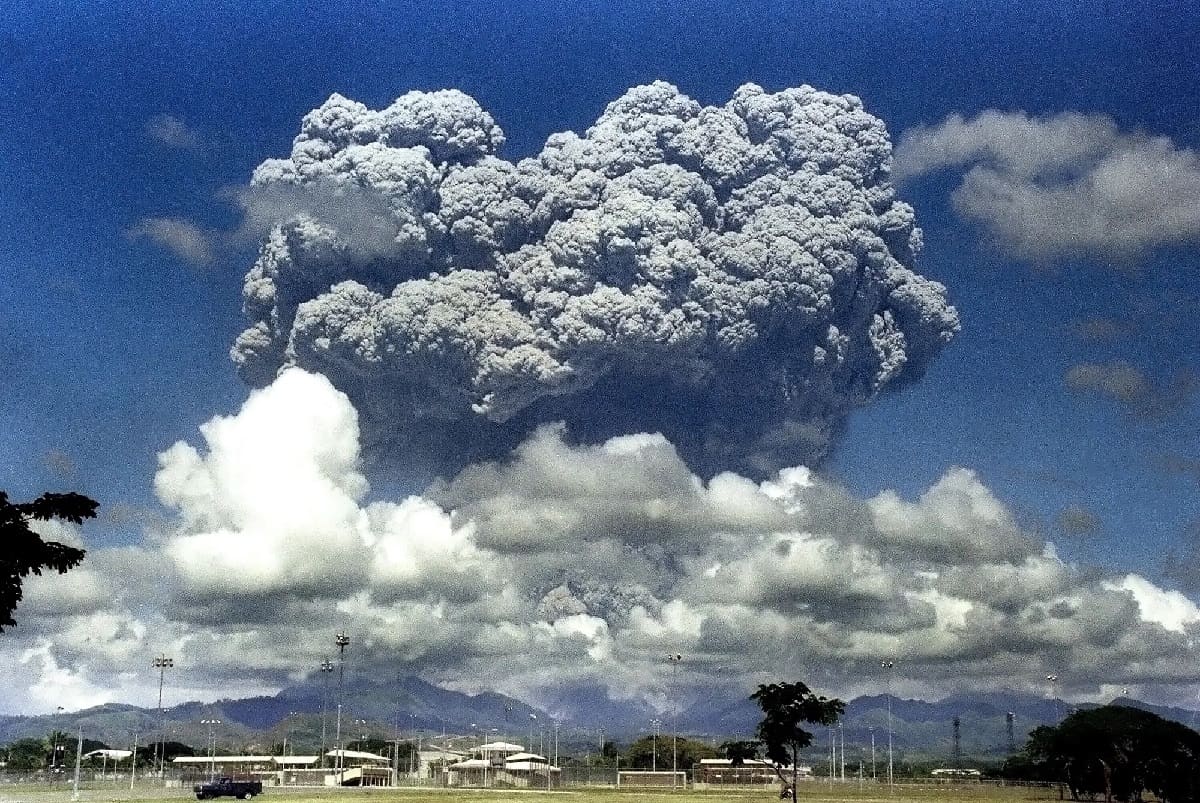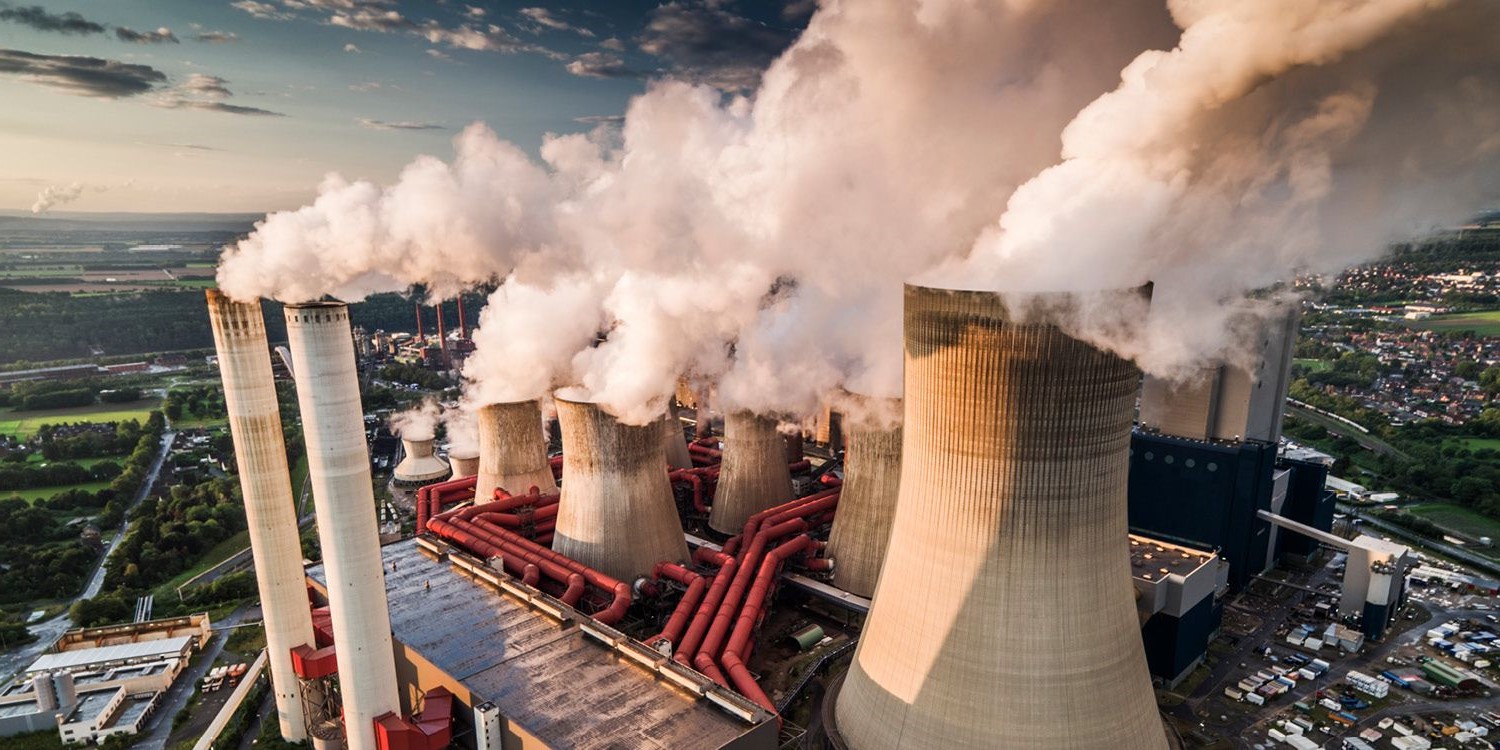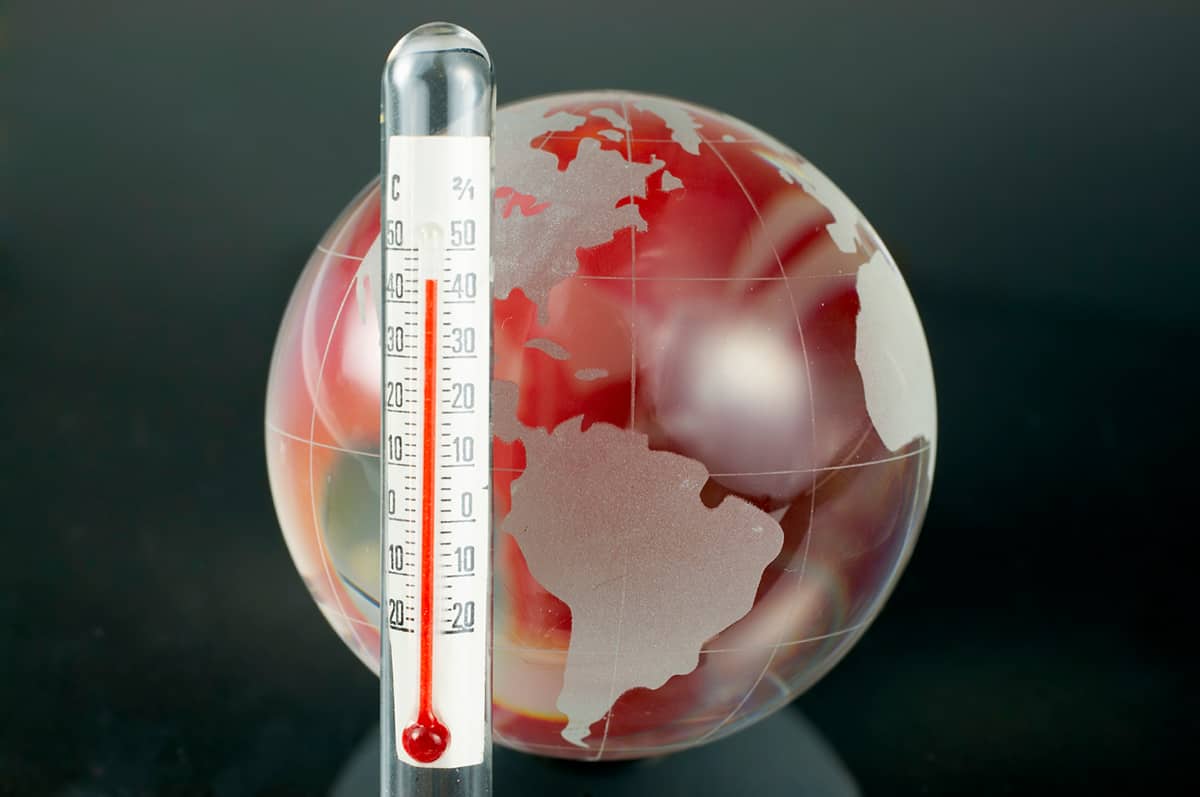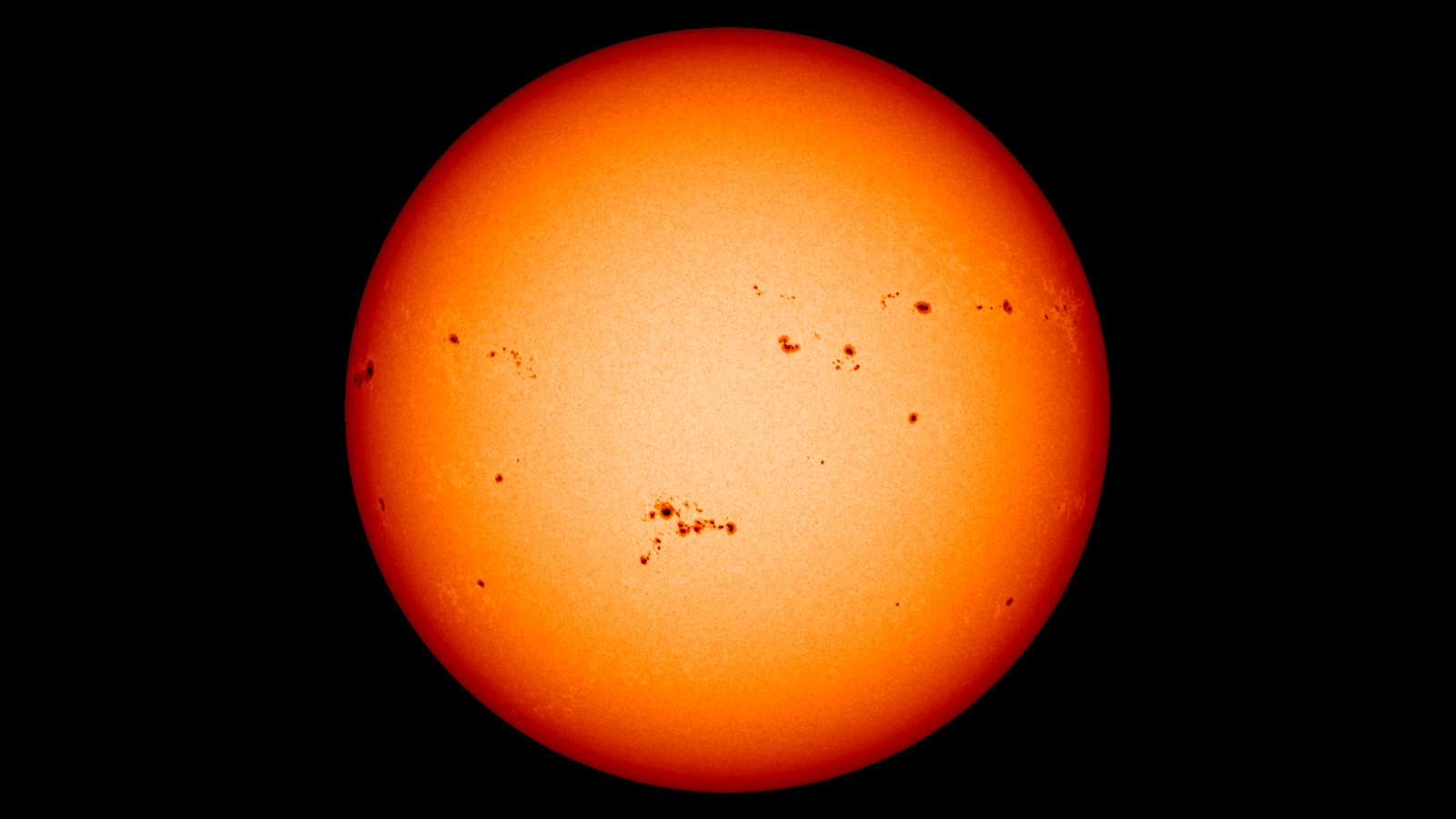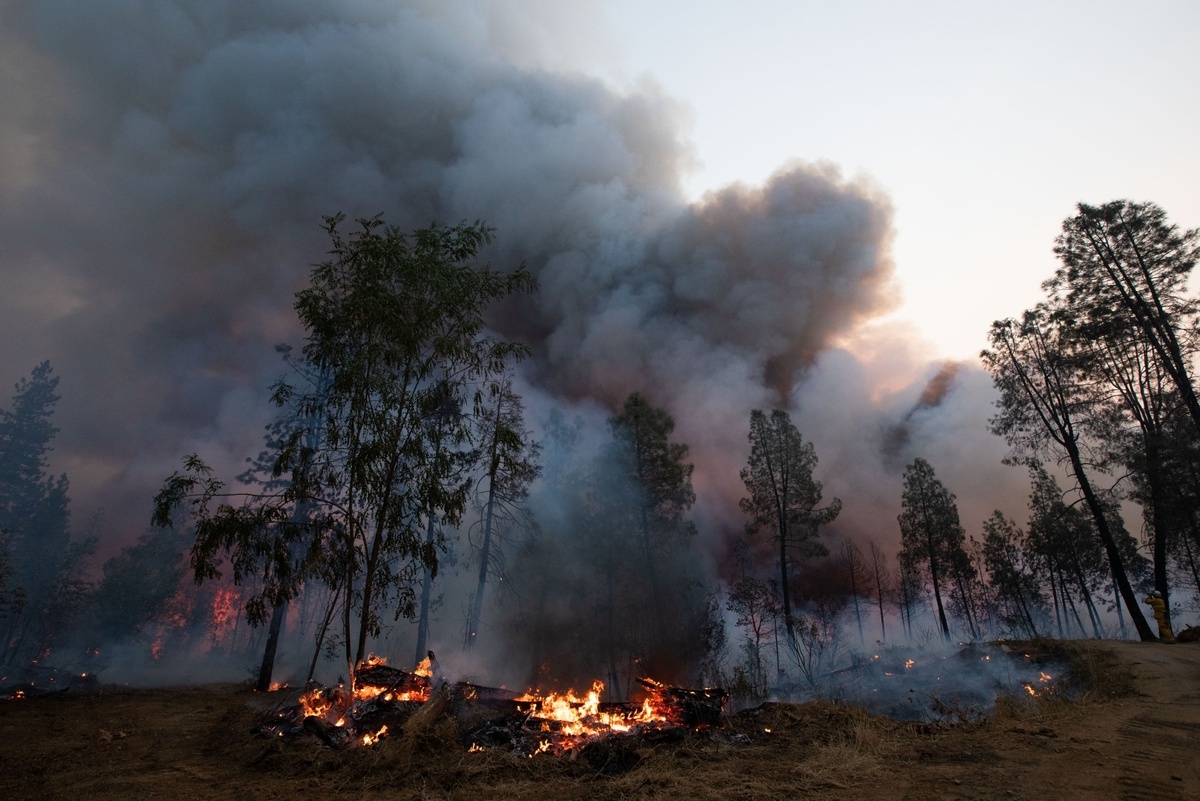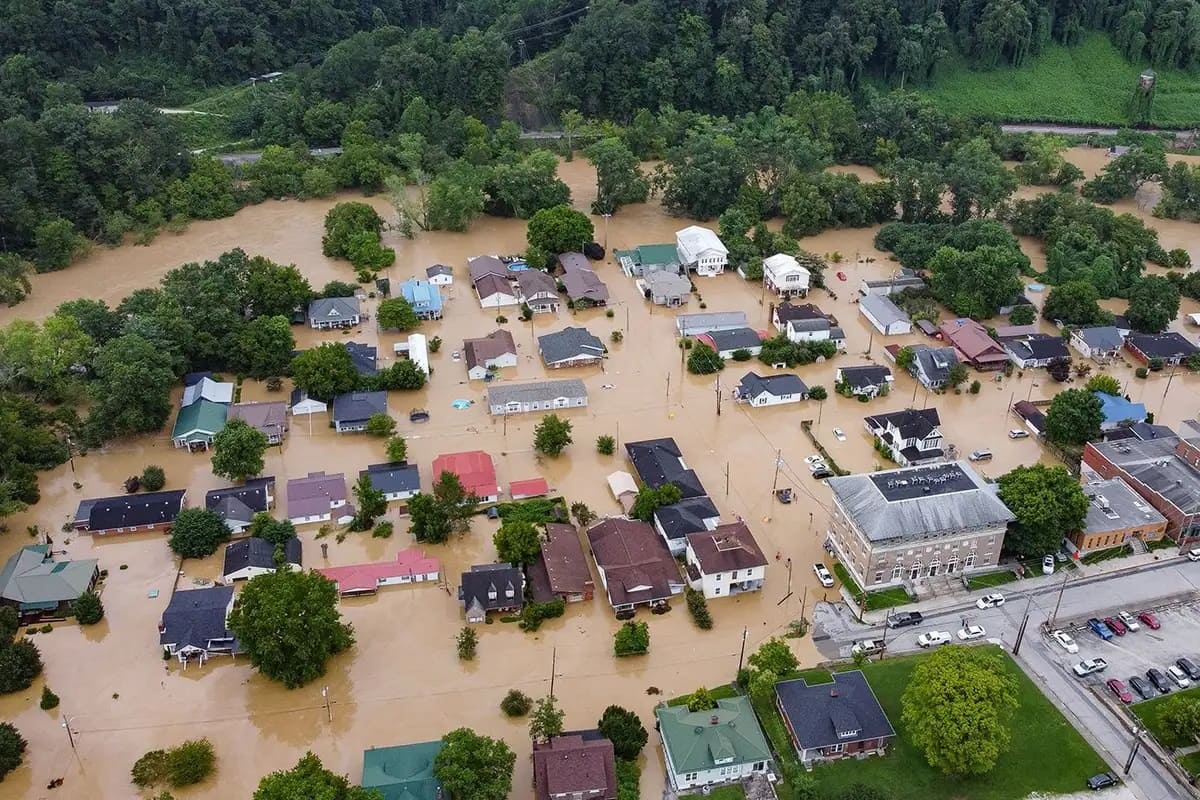Home>Weather and Climate>The Impact Of Global Warming Since 1998
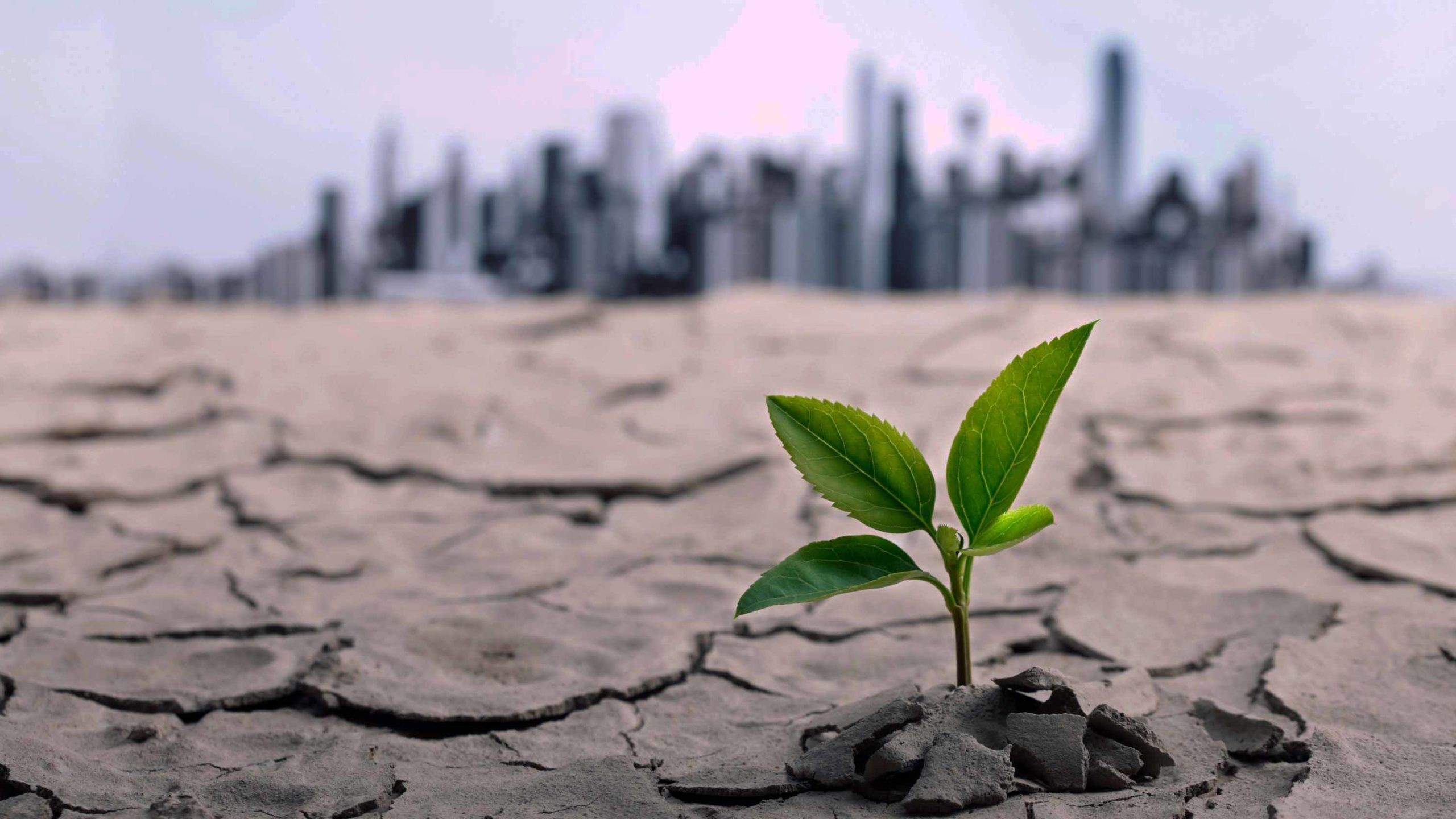

Weather and Climate
The Impact Of Global Warming Since 1998
Published: March 6, 2024
Explore the impact of global warming on weather and climate since 1998. Gain insights into the changing environmental patterns and their implications.
(Many of the links in this article redirect to a specific reviewed product. Your purchase of these products through affiliate links helps to generate commission for Temperatures.com, at no extra cost. Learn more)
Table of Contents
Introduction
Global warming has been a topic of significant concern since the late 20th century. The Earth's climate has been undergoing unprecedented changes, leading to a myriad of environmental, social, and economic impacts. Since 1998, the effects of global warming have become increasingly apparent, prompting widespread discussions and initiatives aimed at mitigating its consequences.
The rise in global temperatures, primarily attributed to human activities such as the burning of fossil fuels and deforestation, has triggered a cascade of effects that extend far beyond mere temperature increases. These effects encompass alterations in weather patterns, disruptions to ecosystems, rising sea levels, health implications, and substantial economic repercussions. The urgency to address these issues has never been more pressing, as the ramifications of global warming continue to unfold at an alarming pace.
As we delve into the intricacies of global warming and its multifaceted impacts, it becomes evident that concerted efforts are essential to safeguard the planet and its inhabitants from the far-reaching consequences of climate change. The subsequent sections will delve into the scientific mechanisms driving global warming, the observable changes in weather patterns, the profound impact on ecosystems, the concerning rise in sea levels, the health implications, the economic ramifications, and the ongoing endeavors to combat this pressing global issue. Through a comprehensive exploration of these facets, we can gain a deeper understanding of the gravity of global warming and the imperative need for collective action to address it.
The Science Behind Global Warming
Global warming, a phenomenon that has garnered widespread attention since 1998, is rooted in the intricate workings of the Earth's climate system. At its core, global warming is propelled by the greenhouse effect, a natural process that regulates the planet's temperature. However, human activities have significantly intensified this effect, leading to a rapid escalation in global temperatures.
The primary driver of global warming is the emission of greenhouse gases, such as carbon dioxide (CO2), methane (CH4), and nitrous oxide (N2O), into the atmosphere. These gases act as a thermal blanket, trapping heat from the sun and preventing it from escaping back into space. As industrialization and urbanization have surged over the past century, the concentration of greenhouse gases in the atmosphere has skyrocketed, amplifying the greenhouse effect and causing a substantial rise in global temperatures.
The combustion of fossil fuels, including coal, oil, and natural gas, is a major source of CO2 emissions. Additionally, deforestation and land-use changes have contributed to the imbalance of greenhouse gases in the atmosphere. These human-induced activities have disrupted the delicate equilibrium that governs the Earth's climate, leading to a discernible warming trend.
The consequences of this warming trend are far-reaching, encompassing shifts in precipitation patterns, alterations in the frequency and intensity of extreme weather events, and disruptions to ecosystems. The scientific community has amassed compelling evidence through extensive research, including climate models, satellite observations, and paleoclimate data, all of which corroborate the reality of global warming and its anthropogenic origins.
Furthermore, the Intergovernmental Panel on Climate Change (IPCC), a leading international body of climate scientists, has unequivocally affirmed the role of human activities in driving global warming. Their comprehensive assessments have underscored the urgency of curbing greenhouse gas emissions to mitigate the adverse impacts of climate change.
In essence, the science behind global warming is firmly grounded in the fundamental principles of atmospheric physics and chemistry. The intricate interplay of greenhouse gases, solar radiation, and Earth's surface processes culminates in a complex web of climatic changes that have profound implications for the planet and its inhabitants. Understanding the scientific underpinnings of global warming is pivotal in formulating effective strategies to address this pressing global challenge.
Changes in Weather Patterns
The impact of global warming since 1998 has been starkly evident in the discernible changes in weather patterns across the globe. As temperatures continue to rise, the intricate dynamics of weather systems are being significantly influenced, giving rise to a spectrum of climatic anomalies and extreme events.
One of the most conspicuous manifestations of these changes is the intensification of extreme weather events. Heatwaves have become more frequent and severe, subjecting regions to prolonged periods of scorching temperatures. Conversely, instances of intense precipitation and flooding have surged, leading to devastating consequences for communities and infrastructure. The increased frequency and severity of hurricanes, cyclones, and typhoons have also been linked to the warming of ocean waters, underscoring the far-reaching impact of global warming on weather phenomena.
Moreover, shifts in precipitation patterns have been observed, with some regions experiencing prolonged droughts while others grapple with excessive rainfall. These alterations in precipitation have profound implications for agriculture, water resources, and the overall resilience of ecosystems. Furthermore, the changing patterns of snowfall and melting glaciers are indicative of the intricate interplay between global warming and weather dynamics, with implications for water availability and sea level rise.
The repercussions of these weather pattern changes extend beyond mere meteorological phenomena. They permeate various facets of human life, from agriculture and food security to public health and infrastructure resilience. Communities are increasingly vulnerable to the ramifications of erratic weather patterns, necessitating adaptive measures and robust disaster preparedness.
The scientific community continues to scrutinize these changes in weather patterns, leveraging advanced modeling techniques and observational data to unravel the complex interconnections between global warming and weather dynamics. This ongoing research is crucial for enhancing our understanding of the evolving climate system and informing proactive strategies to mitigate the adverse impacts of changing weather patterns.
In essence, the changes in weather patterns since 1998 serve as poignant indicators of the profound influence of global warming on the Earth's climate. As these patterns continue to evolve, it is imperative to prioritize resilience-building efforts and sustainable adaptation measures to safeguard communities and ecosystems from the escalating impacts of a changing climate.
Impact on Ecosystems
The impact of global warming on ecosystems since 1998 has been profound and far-reaching, exerting significant pressures on the delicate balance of natural habitats and biodiversity. Ecosystems, encompassing diverse terrestrial, aquatic, and marine environments, have been subjected to a myriad of stressors arising from the escalating effects of climate change.
One of the most conspicuous consequences of global warming on ecosystems is the alteration of species distributions and ecological interactions. As temperatures continue to rise, many plant and animal species are compelled to migrate to more hospitable habitats, disrupting established ecological communities and potentially leading to the loss of biodiversity. Furthermore, the intricate web of interactions among species, including pollination, predation, and competition, is being perturbed by the changing climate, posing challenges for the resilience and stability of ecosystems.
The warming of oceans has triggered widespread bleaching of coral reefs, leading to extensive coral mortality and the degradation of vital marine habitats. Coral reefs, renowned for their exceptional biodiversity and ecological significance, are facing unprecedented threats due to rising sea temperatures and ocean acidification, jeopardizing the myriad species that depend on these vibrant ecosystems for sustenance and shelter.
Moreover, terrestrial ecosystems, including forests, grasslands, and tundra regions, are experiencing pronounced shifts in vegetation dynamics and productivity. The increasing incidence of wildfires, exacerbated by prolonged droughts and elevated temperatures, has wrought havoc on forest ecosystems, leading to deforestation, habitat fragmentation, and the loss of critical wildlife habitats. Additionally, thawing permafrost in Arctic regions has instigated the release of methane, a potent greenhouse gas, further exacerbating the cycle of global warming and its impacts on ecosystems.
The ramifications of these ecosystem disruptions extend beyond ecological realms, permeating human societies and livelihoods. Communities reliant on natural resources for sustenance and economic activities are grappling with the repercussions of ecosystem degradation, including diminished agricultural productivity, dwindling fisheries, and compromised water security.
Efforts to mitigate the impact of global warming on ecosystems necessitate a multifaceted approach, encompassing conservation measures, sustainable land management, and the preservation of critical habitats. Furthermore, fostering resilience in ecosystems through adaptive strategies and the reduction of additional stressors is imperative for safeguarding the intricate web of life on Earth.
In essence, the impact of global warming on ecosystems underscores the intricate interdependencies between climate dynamics and ecological resilience. As these ecosystems continue to confront escalating pressures, concerted efforts are indispensable to mitigate the adverse impacts and foster the resilience of natural habitats and biodiversity.
Rising Sea Levels
The phenomenon of rising sea levels, a direct consequence of global warming since 1998, has emerged as a pressing concern with profound implications for coastal regions and island nations worldwide. The warming of the Earth's atmosphere has triggered the thermal expansion of seawater and the accelerated melting of polar ice caps and glaciers, contributing to the relentless rise in global sea levels.
The escalating sea levels pose imminent threats to coastal communities, infrastructure, and vital ecosystems. Low-lying coastal areas are particularly vulnerable to inundation, erosion, and saltwater intrusion, exacerbating the risk of displacement and loss of habitable land. Small island nations, already grappling with limited landmass, face the existential threat of submergence and the erosion of their cultural heritage due to encroaching seawater.
Furthermore, the ramifications of rising sea levels extend beyond immediate coastal impacts, permeating diverse sectors such as agriculture, freshwater resources, and biodiversity. Saltwater intrusion into coastal aquifers jeopardizes freshwater supplies, compromising agricultural productivity and potable water availability for communities. Additionally, vital coastal ecosystems, including mangroves and estuaries, face the peril of submergence and habitat degradation, disrupting the intricate balance of marine and terrestrial biodiversity.
The accelerating pace of sea level rise underscores the urgency of proactive measures to mitigate its impacts and enhance coastal resilience. Adaptation strategies, including the implementation of robust coastal defense mechanisms, sustainable land-use planning, and the restoration of natural buffers such as mangrove forests, are pivotal for safeguarding vulnerable coastal regions from the encroachment of rising seas.
Moreover, international collaboration and policy frameworks play a crucial role in addressing the complex challenges posed by rising sea levels. Coordinated efforts to reduce greenhouse gas emissions, bolster coastal infrastructure, and support vulnerable communities are imperative for fostering adaptive capacity and mitigating the far-reaching impacts of sea level rise.
In essence, the escalating trend of rising sea levels underscores the imperative of prioritizing proactive measures to safeguard coastal regions and island nations from the pervasive impacts of global warming. By fostering resilience and implementing sustainable adaptation strategies, the global community can strive to mitigate the multifaceted challenges posed by rising seas and uphold the integrity of coastal ecosystems and communities.
Health Effects
The pervasive impacts of global warming since 1998 extend beyond environmental and ecological realms, permeating human health with a spectrum of consequential effects. The escalating trends of rising temperatures, altered weather patterns, and environmental disruptions have profound implications for public health, necessitating a comprehensive understanding of the intricate interconnections between climate dynamics and human well-being.
One of the most discernible health effects of global warming is the exacerbation of heat-related illnesses. As temperatures continue to rise, particularly in urban areas influenced by the urban heat island effect, the incidence of heat exhaustion, heatstroke, and dehydration escalates, posing significant risks to vulnerable populations, including the elderly, children, and individuals with pre-existing health conditions. Furthermore, the intensification of heatwaves can engender adverse cardiovascular and respiratory outcomes, amplifying the burden on healthcare systems and underscoring the imperative of proactive heat mitigation strategies.
The changing climate also influences the prevalence and distribution of vector-borne diseases, such as malaria, dengue fever, and Lyme disease. Alterations in temperature and precipitation patterns can expand the geographic range of disease vectors, facilitating the transmission of infectious diseases to new regions. Additionally, extreme weather events, including floods and hurricanes, can precipitate waterborne diseases and exacerbate sanitation challenges, heightening the vulnerability of communities to infectious illnesses.
Furthermore, the impact of global warming on air quality is a pressing concern for public health. The escalation of wildfires, linked to prolonged droughts and heightened temperatures, contributes to the degradation of air quality, leading to an upsurge in respiratory ailments and exacerbations of chronic respiratory conditions. Additionally, the proliferation of allergens, such as pollen and mold, due to shifting vegetation dynamics and prolonged growing seasons, poses challenges for individuals with respiratory sensitivities and allergies.
The mental health implications of climate change are also a salient facet of the health effects associated with global warming. The exacerbation of extreme weather events, displacement due to sea level rise, and the loss of livelihoods in climate-affected regions can precipitate psychological distress, anxiety, and trauma, necessitating comprehensive mental health support and resilience-building interventions for affected communities.
In essence, the health effects of global warming since 1998 underscore the intricate nexus between climate dynamics and human well-being. Proactive measures, including heat mitigation strategies, disease surveillance and control, air quality management, and mental health support, are pivotal for safeguarding public health in the face of escalating climate challenges. By prioritizing comprehensive approaches that integrate climate resilience and public health, societies can strive to mitigate the multifaceted health effects of global warming and foster adaptive capacity in the face of a changing climate.
Economic Consequences
The economic ramifications of global warming since 1998 have reverberated across diverse sectors, exerting profound impacts on economies, livelihoods, and global financial systems. The escalating effects of climate change have engendered a spectrum of challenges, necessitating comprehensive assessments of the multifaceted economic consequences.
One of the most conspicuous economic consequences of global warming is the escalating financial burden associated with extreme weather events. The intensification of hurricanes, floods, and wildfires has precipitated substantial infrastructure damage, agricultural losses, and disruptions to supply chains, imposing significant financial strains on affected regions. The escalating costs of disaster response and recovery, coupled with the imperative of bolstering resilience in infrastructure and communities, underscore the far-reaching economic implications of extreme weather events.
Furthermore, the impact of global warming on agricultural productivity and food security is a salient facet of its economic consequences. Shifts in precipitation patterns, prolonged droughts, and the proliferation of pests and diseases linked to changing climate dynamics have engendered challenges for agricultural systems, leading to diminished yields and compromised food production. The economic repercussions of these agricultural disruptions permeate global food markets, influencing prices, trade dynamics, and food access for vulnerable populations, underscoring the imperative of proactive measures to enhance agricultural resilience in the face of a changing climate.
The escalating trend of rising sea levels poses significant economic challenges for coastal regions and island nations. The erosion of coastlines, saltwater intrusion into freshwater resources, and the vulnerability of critical infrastructure to inundation necessitate substantial investments in coastal defense mechanisms and adaptation strategies. The economic costs associated with safeguarding coastal communities and vital ecosystems from the encroachment of rising seas underscore the imperative of proactive measures to mitigate the far-reaching economic consequences of sea level rise.
Moreover, the energy sector is grappling with the imperative of transitioning towards sustainable and resilient energy systems in the face of global warming. The escalating frequency of extreme weather events, coupled with the imperative of reducing greenhouse gas emissions, has precipitated a paradigm shift towards renewable energy sources and low-carbon technologies. The economic implications of this transition encompass investments in clean energy infrastructure, job creation in the renewable energy sector, and the imperative of fostering energy resilience in the face of climate-related disruptions.
In essence, the economic consequences of global warming underscore the imperative of proactive measures to enhance resilience, foster sustainable economic systems, and mitigate the multifaceted challenges posed by a changing climate. By prioritizing comprehensive approaches that integrate climate resilience and economic sustainability, societies can strive to mitigate the far-reaching economic implications of global warming and foster adaptive capacity in the face of a changing climate.
Efforts to Combat Global Warming
Efforts to combat global warming have gained momentum since 1998, reflecting a collective recognition of the imperative to address the escalating impacts of climate change. The multifaceted nature of global warming necessitates a comprehensive approach encompassing mitigation strategies, adaptation measures, and international collaboration to foster resilience in the face of a changing climate.
One pivotal facet of efforts to combat global warming is the imperative of reducing greenhouse gas emissions. Nations worldwide have endeavored to implement policies and initiatives aimed at curbing emissions from industrial processes, transportation, and energy production. The transition towards renewable energy sources, including solar, wind, and hydroelectric power, has gained traction as a sustainable alternative to fossil fuels, contributing to the reduction of carbon emissions and the mitigation of global warming.
Furthermore, the imperative of enhancing energy efficiency across diverse sectors has been a focal point of efforts to combat global warming. The implementation of energy-efficient technologies, sustainable urban planning, and the promotion of low-carbon transportation systems has been pivotal in reducing the carbon footprint and fostering sustainable development.
Adaptation measures play a crucial role in efforts to combat global warming, particularly in the context of enhancing resilience in vulnerable communities and ecosystems. The implementation of climate-resilient infrastructure, early warning systems for extreme weather events, and sustainable land-use planning are pivotal for safeguarding communities from the impacts of a changing climate. Furthermore, the preservation and restoration of critical ecosystems, including mangroves, wetlands, and forests, contribute to the adaptive capacity of natural habitats and their ability to withstand climate-related stressors.
International collaboration and policy frameworks are indispensable for fostering concerted efforts to combat global warming. The Paris Agreement, a landmark international accord, exemplifies the commitment of nations to limit global temperature rise and enhance adaptive capacity. Through collaborative initiatives, knowledge sharing, and capacity building, the global community endeavors to address the complex challenges posed by global warming and foster sustainable development pathways.
In essence, the multifaceted efforts to combat global warming underscore the imperative of proactive measures to mitigate the far-reaching impacts of climate change. By prioritizing comprehensive approaches that integrate mitigation, adaptation, and international collaboration, societies can strive to foster resilience and mitigate the multifaceted challenges posed by a changing climate.
Conclusion
The impact of global warming since 1998 has reverberated across diverse facets of the Earth's ecosystems, weather patterns, human health, and economies, underscoring the imperative of proactive measures to address the escalating challenges posed by a changing climate. The scientific underpinnings of global warming, rooted in the intensification of the greenhouse effect due to human activities, have propelled a cascade of environmental and societal consequences, necessitating comprehensive strategies to mitigate its far-reaching impacts.
The discernible changes in weather patterns, characterized by the intensification of extreme weather events, shifts in precipitation patterns, and alterations in temperature dynamics, underscore the profound influence of global warming on the Earth's climate system. These changes permeate diverse facets of human life, from agriculture and food security to infrastructure resilience, necessitating adaptive measures and robust disaster preparedness to safeguard communities and ecosystems.
The impact of global warming on ecosystems has been pronounced, leading to alterations in species distributions, ecological interactions, and the degradation of critical habitats. The resilience of natural habitats and biodiversity is pivotal for mitigating the adverse impacts of climate change, necessitating conservation measures, sustainable land management, and the preservation of critical ecosystems.
Rising sea levels, a direct consequence of global warming, pose imminent threats to coastal regions and island nations, necessitating robust coastal defense mechanisms, sustainable land-use planning, and the restoration of natural buffers to safeguard vulnerable communities from the encroachment of rising seas.
The health effects of global warming, encompassing heat-related illnesses, vector-borne diseases, air quality degradation, and mental health implications, underscore the intricate nexus between climate dynamics and human well-being. Proactive measures, including heat mitigation strategies, disease surveillance and control, air quality management, and mental health support, are pivotal for safeguarding public health in the face of escalating climate challenges.
The economic consequences of global warming have reverberated across diverse sectors, exerting profound impacts on economies, livelihoods, and global financial systems. The imperative of proactive measures to enhance resilience, foster sustainable economic systems, and mitigate the multifaceted challenges posed by a changing climate is pivotal for addressing the economic ramifications of global warming.
Efforts to combat global warming, encompassing mitigation strategies, adaptation measures, and international collaboration, underscore the imperative of proactive measures to mitigate the far-reaching impacts of climate change. By prioritizing comprehensive approaches that integrate mitigation, adaptation, and international collaboration, societies can strive to foster resilience and mitigate the multifaceted challenges posed by a changing climate.
In conclusion, the urgency to address the multifaceted impacts of global warming since 1998 necessitates concerted efforts, international collaboration, and proactive measures to mitigate the far-reaching consequences of climate change. By fostering resilience, enhancing adaptive capacity, and prioritizing sustainable development pathways, the global community can strive to address the complex challenges posed by a changing climate and safeguard the planet for future generations.

